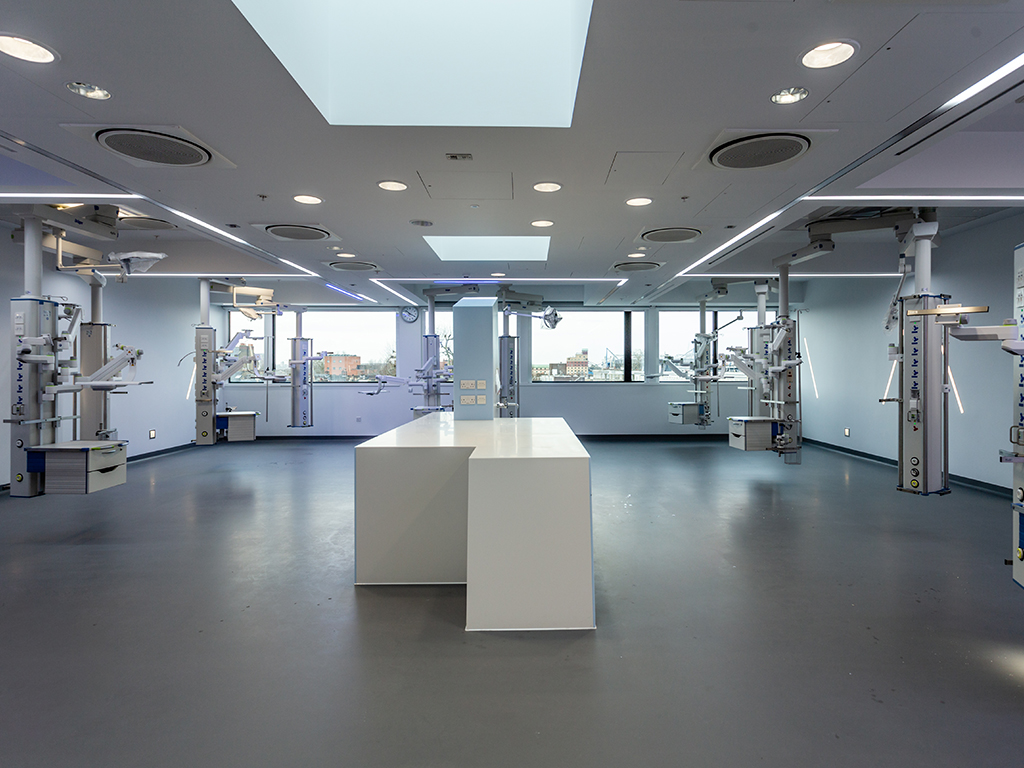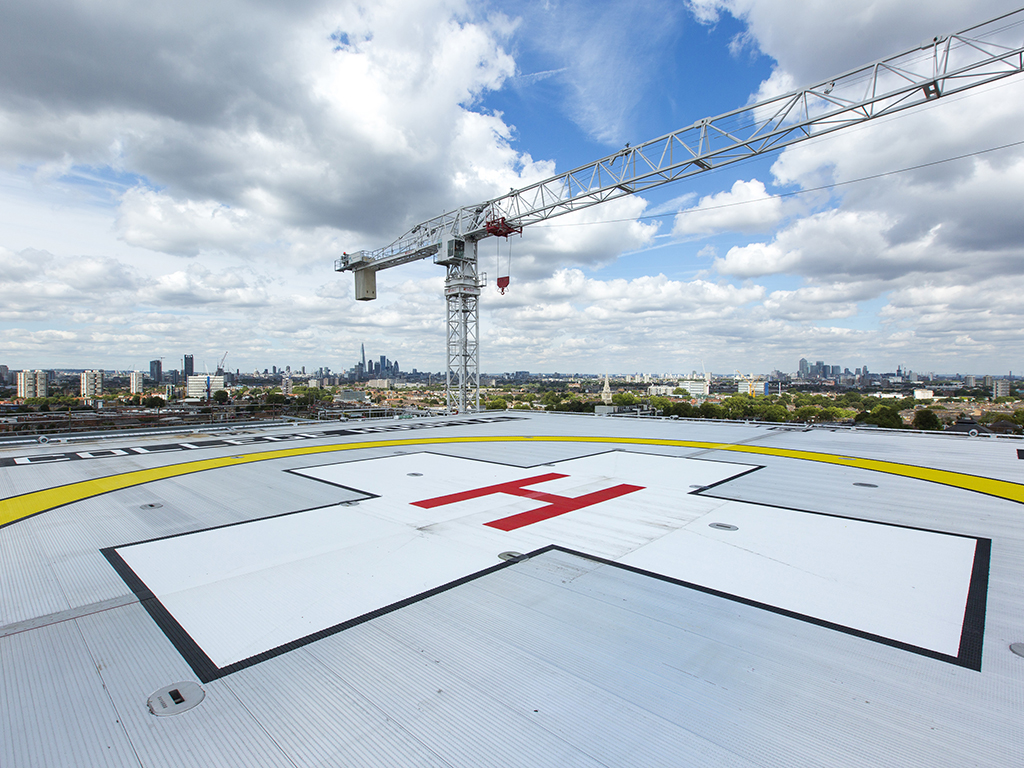At McLaughlin & Harvey, we pride ourselves on our agile approach, listening and reacting accordingly to ensure we deliver on our commitments and successfully navigate any challenges along the way. This agility is particularly important in the healthcare sector, where working in live hospital settings often means adapting to ensure healthcare professionals can deliver continuity of service.
Chelsea and Westminster Hospital
Our work at Chelsea and Westminster Hospital is a great example. This £21.5m project entailed a multi-phased redevelopment of the 5th floor Intensive Care Unit (ICU) and 3rd floor Neo-Natal Intensive Care Unit (NICU) through a combination of new-build and refurbishment. Throughout the work, the hospital remained live and fully operational, with the project being completed during the COVID-19 pandemic. This made for a unique and often challenging set of circumstances, meaning our team had to be resilient in an ever-changing working environment.
As a result of the pandemic, the programme needs evolved and we adapted an open and flexible approach, working with the client to discuss changes required at any stage of the project. For example, the ICU ward was changed at late notice to be temporarily converted into a negative pressure ward to accommodate COVID-19 patients, meaning reversing a lot of the work that had already been done. Whilst completing this change, we were required to comply with the pandemic regulations, which meant we needed to implement a three shift pattern over 24 hours for the construction team to adhere to social distancing requirements, all while still working to meet original timelines to accommodate rising infection rates.
Some of our team demonstrated their own commitment by staying on site for a 5-week period until the ward was complete. They also selflessly worked around the clock to ensure the build was completed as soon as possible.
The pandemic presented other hurdles too, such as loss of resources and material shortages due to many companies shutting down. However, through collaboration with design teams and clinicians, we managed to deliver the NICU phase of the project three weeks ahead of schedule, allowing for early clinical access to critical bed space. Practical completion was achieved on the 14th of May 2021, with the first patient treated three days later.
The pandemic aside, we also had to adjust the proposed phasing of work to align with the floor plate divides. Whilst the floor plans had been split to suit clinical operations and movements, they did not consider the new service connections and integrations to operate the new areas. Working with the clinical teams, we agreed to change the planned work areas, which also minimised clinical disruption further.
Additionally, the client had planned to use spider cranes to extend the roof by a storey, but when this was reviewed, it was found that the existing floor slabs were unable to support their weight. As a result, we revised the construction methods and decided to introduce a second tower crane instead. This also reduced disruption to the floors below the proposed extension.

King’s College Hospital
We also demonstrated our commitment to going above and beyond while working on a state-of-the-art critical care facility with supporting office accommodation above an existing theatre block at King’s College Hospital. Included in this was the creation of a new helipad on top of an existing ten-story adjacent building within the live hospital campus.
Several adaptations were made to ensure that the hospital could continue to operate as normal, including its blue light routes. One of the most significant accommodations was a dedicated 24-hour emergency line which enabled the emergency response crews to directly communicate with the construction team to request site activity to stop when a helicopter needed to land.
The emergency line was primarily used once the first phase of the project, the helipad, was complete and live and we were working on the critical care facility. As cranes were being used to lift construction materials, the team was informed when a helicopter was inbound, and they were required to quickly put work on hold for them to land safely. This often required having to vacate certain areas and bring cranes down or pause crane operations mid-lift, a complex task that requires stringent health and safety processes.
Once the helicopters had left, the site team was then contacted to confirm it was safe to resume work. Throughout this period, we had to be responsive and quick-thinking to ensure that it was safe for the helicopters to land and for the people working on the site. The project was completed in November 2023 and was a testament to the strong communication and collaboration between the site team and the emergency services, enabling both to do their work in tandem within a safe environment.
In critical care environments like these, being agile and adaptable is key to delivering projects with minimum disruption. With 170 years in the construction business and nearly 150 years of healthcare project experience, at McLaughlin & Harvey we know how to deploy innovative, forward-thinking solutions to overcome barriers and go above and beyond to deliver on our commitments.
We also genuinely care about working in a way that supports people and improves the world around us. Playing our part in helping Chelsea & Westminster Hospital through the pandemic, and ensuring that emergency services could deliver life-saving care at King’s College Hospital, are some of our proudest achievements.
